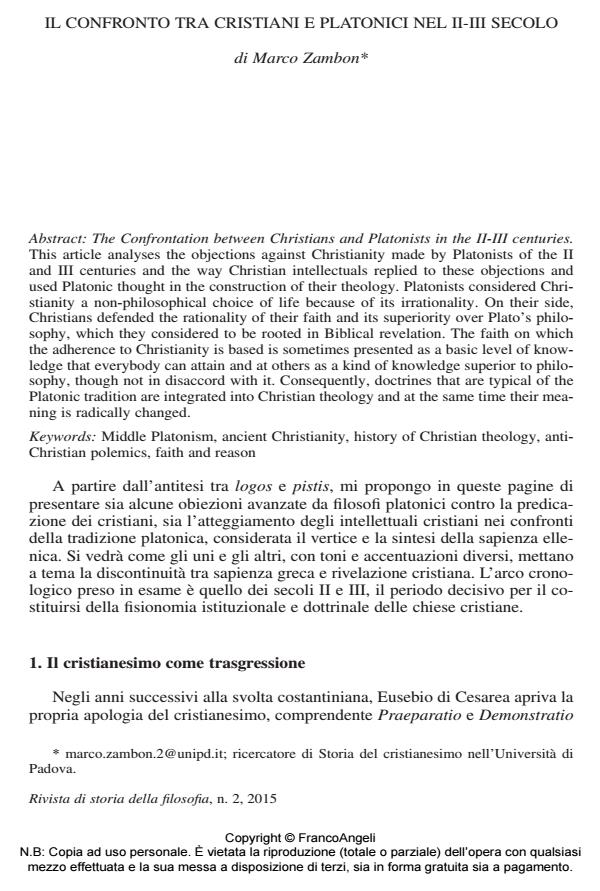Il confronto tra cristiani e platonici nel II-III secolo
Titolo Rivista RIVISTA DI STORIA DELLA FILOSOFIA
Autori/Curatori Marco Zambon
Anno di pubblicazione 2015 Fascicolo 2015/2
Lingua Italiano Numero pagine 16 P. 473-488 Dimensione file 100 KB
DOI 10.3280/SF2015-002010
Il DOI è il codice a barre della proprietà intellettuale: per saperne di più
clicca qui
Qui sotto puoi vedere in anteprima la prima pagina di questo articolo.
Se questo articolo ti interessa, lo puoi acquistare (e scaricare in formato pdf) seguendo le facili indicazioni per acquistare il download credit. Acquista Download Credits per scaricare questo Articolo in formato PDF

FrancoAngeli è membro della Publishers International Linking Association, Inc (PILA), associazione indipendente e non profit per facilitare (attraverso i servizi tecnologici implementati da CrossRef.org) l’accesso degli studiosi ai contenuti digitali nelle pubblicazioni professionali e scientifiche.
This article analyses the objections against Christianity made by Platonists of the II and III centuries and the way Christian intellectuals replied to these objections and used Platonic thought in the construction of their theology. Platonists considered Christianity a non-philosophical choice of life because of its irrationality. On their side, Christians defended the rationality of their faith and its superiority over Plato’s philosophy, which they considered to be rooted in Biblical revelation. The faith on which the adherence to Christianity is based is sometimes presented as a basic level of knowledge that everybody can attain and at others as a kind of knowledge superior to philosophy, though not in disaccord with it. Consequently, doctrines that are typical of the Platonic tradition are integrated into Christian theology and at the same time their meaning is radically changed.
Parole chiave:Middle Platonism, ancient Christianity, history of Christian theology, anti- Christian polemics, faith and reason
- Ut in his reperias aliquam partem uasorum Dei: Jerome and the Pagan Culture in the CDan Daniela Scardia, in Religions /2025 pp.906
DOI: 10.3390/rel16070906
Marco Zambon, Il confronto tra cristiani e platonici nel II-III secolo in "RIVISTA DI STORIA DELLA FILOSOFIA" 2/2015, pp 473-488, DOI: 10.3280/SF2015-002010